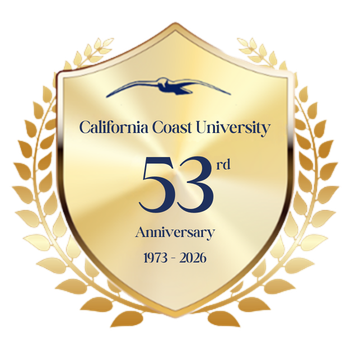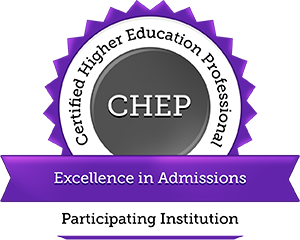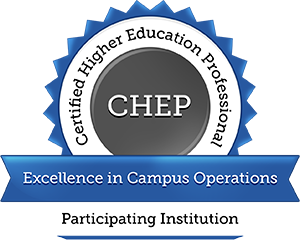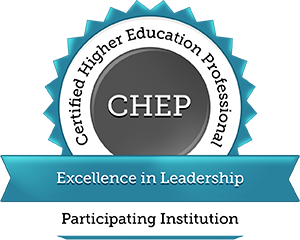|
BAM 105 |
Introduction to Business |
3 |
Introduction to Business introduces the business world and the contemporary environment in which it operates. How business operations are managed and organized will be explored and the basic ideas of marketing processes and consumer behavior will be discussed. Additionally, students will become aware of the changing face of business, with its current technological and management information system advances.
Course Objectives:
Upon successful completion of this course, students will be able to:
- Describe the types of ethical and social responsibility issues that affect the contemporary business environment.
- Explain how businesses, operations, and people are organized and managed.
- Demonstrate an understanding of the principles of marketing, including marketing processes, consumer behavior, customer relationships.
- Explain the financial issues facing business today, including money, banking, securities and investments.
- Demonstrate an understanding of the utilization of information technology within a business environment.
- Demonstrate proficiency with academic writing related to the introduction to business course content.
|
|
BAM 306 |
Principles of Marketing |
3 |
Principles of Marketing examines the various functions of modern marketing including the market, product and price systems, distribution structure, and promotional activities. The course covers services, nonprofit and for-profit organization marketing including the planning, implementation, evaluation, and control of the marketing effort. Ethics in marketing and socially responsible global marketing are also explored.
Course Objectives:
Upon successful completion of this course, students will be able to:
- Define and describe the multiple factors related to the field of marketing.
- Analyze the various types of market opportunities.
- Examine concepts related to product, pricing, and distribution decisions.
- Demonstrate an understanding of promotion and communication strategies.
- Demonstrate proficiency with academic writing related to marketing.
|
|
BAM 402 |
Public Relations |
3 |
This course examines public relations as a values-driven management function focused on building productive, ethical, and mutually beneficial relationships between organizations and their key publics. Students explore foundational theories, historical development, social responsibility, and the use of emerging technologies and social media in contemporary PR practice. This course also examines the dynamic growth of global communications and the challenges it poses for public relations.
Course Objectives
Upon successful completion of this course, students will be able to:
- Examine the theoretical foundations, key terms, and historical development of public relations.
- Analyze the ethical and social responsibility issues that shape public relations practice.
- Evaluate best practices for using social media and emerging technologies in public relations.
- Assess the challenges and opportunities involved in the globalization of public relations.
- Demonstrate proficiency with academic writing related to public relations.
|
|
BAM 418 |
Small Business Management |
3 |
Small Business Management presents an overview of entrepreneurship, including launching a new venture, managing an ongoing venture, financial planning, taxation, and other topics specific to entrepreneurs. Students will learn the necessary elements to successfully start, run, and manage a small business and be able to apply those concepts and ideas within their business careers, even if they do not choose the entrepreneurial route.
Course Objectives
Upon successful completion of this course, students will be able to:
- Demonstrate an understanding of the basics and challenges of small business management including its role in the U.S. economy.
- Recognize the importance of strategic planning and early decisions in small business management.
- Describe key principles of financial and legal management.
- Explain aspects of marketing in small business in relation to products and services.
- Demonstrate proficiency with academic writing related to small business management.
|
|
BCJ 100 |
Introduction to Criminal Justice |
3 |
Introduction to Criminal Justice aims to provide students with a general understanding of the criminal justice system’s response to crime in society. It is important to note that the general theme of this course involves the delicate balance between community interests and individual rights that criminal justice decision-making requires. This theme will be explored by examining the criminal justice process, focusing on how the system is structured to respond to crime.
Course Objectives
Upon successful completion of this course, students will be able to:
- Describe the nature and extent of crime and discuss the foundations of law and the criminal justice system.
- Examine law enforcement from the history of policing through to contemporary issues and challenges confronting the profession.
- Describe the role of the courts in the criminal justice system and the process of prosecution, criminal trial, and sentencing.
- Discuss the key aspects of corrections including its history, community and institutional corrections, prison life, and parole.
- Examine special issues in criminal justice related to juvenile justice, terrorism, human trafficking, hate crimes, and the #MeToo Movement.
- Demonstrate proficiency with academic writing related to criminal justice.
|
|
BCJ 240 |
Procedures in the Justice System |
3 |
Procedures in the Justice System is organized around the theme of balancing the need to detect, investigate, prosecute, and punish crime against the constitutional commitment protecting the rights and liberties of individuals. This course is designed to help students develop a working knowledge of the procedures involved in the justice system and covers the fundamental principles and procedures employed throughout the legal process. Topics include factors related to investigating crimes, considerations and practices related to the procedural and prosecutorial processes, and the trial, sentencing, and appellate processes.
Course Objectives
Upon successful completion of this course, students will be able to:
- Describe the criminal justice process and the sources of criminal procedure.
- Demonstrate an understanding of the factors and requirements related to searches and seizures.
- Examine practices related to interrogations, lineups, and identifications.
- Evaluate the different remedies for constitutional violations.
- Examine the pretrial and trial process, sentencing, and appeals.
- Demonstrate proficiency with academic writing related to procedures in the justice system.
|
|
BCJ 355 |
Homeland Security |
3 |
Homeland Security explores theories, agency missions, laws, and regulations governing the homeland security enterprise. This course examines the many threat scenarios and counter measures that exist in the post–September 11 era. The underlying reasons for constructing an extensive homeland security system—such as threats of extremist violence, potential nonterrorist hazards, and historical episodes of challenges to homeland security—are also covered..
Course Objectives
Upon successful completion of this course, students will be able to:
- Define the historical, legal, and key factors of homeland security and how they impact civil liberties.
- Demonstrate an understanding of the various homeland security agencies and their missions.
- Discuss terrorism and homeland security threats, and examine best practices in addressing these threats in the modern era.
- Describe best practices for preparedness and resilience, and analyze the future challenges and trends related to homeland security.
- Demonstrate proficiency with academic writing related to homeland security.
|
|
BCJ 400 |
Theory and Practices of Law Enforcement |
3 |
Theory and Practices of Law Enforcement explores the historical background and development of the law enforcement field. This course examines the issues of ethical policing, critical thinking and problem solving, the impact of technology on law enforcement, and diversity. This course emphasizes important trends such as using police research and evidence-based policing to implement best practices in law enforcement.
Course Objectives
Upon successful completion of this course, students will be able to:
- Describe the foundations of policing in America including the history, challenges, and ethical issues.
- Examine best practices for police work in relation to recruitment, patrol, crime detection, and investigation.
- Demonstrate an understanding of the hazards of police work including health and safety issues, use of force, and misconduct and corruption.
- Evaluate the various types of police strategies and discuss future trends in American policing.
- Demonstrate proficiency with academic writing related to the theory and practice of law enforcement.
|
|
BCJ 403 |
Theory and Practices of Corrections |
3 |
Theory and Practices of Corrections provides students with an overview of our past and present corrections system, the evolving manner in which inmates have been treated, and the controversies that still remain in the corrections system today. By the end of this course, students should be more knowledgeable about the corrections system, its participants, and the differing perspectives of various members of society regarding the U.S. corrections system.
Course Objectives
Upon successful completion of this course, students will be able to:
- Define key terms and theories related to corrections and examine the importance of studying corrections.
- Demonstrate an understanding of correctional clients and correctional policies and operations.
- Examine issues related to prison life including management, staff, custody, and treatment programs.
- Analyze legal issues that affect corrections, and examine current challenges and future trends.
- Demonstrate proficiency with academic writing related to the theory and practices of corrections.
|
|
HCA 200 |
The United States Health Care System |
3 |
The United States Health Care System course is designed to introduce students to the organization, structure, and operation of the nation’s health care system. This course aims to help students effectively identify their present and future roles as consumer, provider, manager, decision-maker, and analyst. The course examines an overview of the health care system, causes and characteristics of health service utilization, the nature of wellness and disease, individual provider settings, financial and nonfinancial resources used and needed, and the measurement of quality of care.
Course Objectives
Upon successful completion of this course, students will be able to:
- Define health and healthcare key terminology, and analyze the role and process of healthcare in America.
- Describe aspects of employment in healthcare delivery including key personnel and the required education and training.
- Examine the various delivery systems in healthcare and discuss related legal, ethical, and political issues.
- Analyze issues in the healthcare industry regarding research, cultural competency, and international applications.
- Demonstrate proficiency with academic writing related to the United States healthcare system.
|
|
HCA 320 |
Essentials of Managed Health Care |
3 |
Essentials of Managed Health Care focuses on health insurance as it impacts the management of healthcare organizations. This course provides a systematic overview of the history of managed healthcare and health insurance in the United States, types of health plans and available payers, the provider network, utilization management, quality management, accreditation, Medicare Advantage, Medicaid managed care, and laws and regulations in health insurance and managed care.
Course Objectives
Upon successful completion of this course, students will be able to:
- Discuss the major forces shaping health insurance and managed care today.
- Examine the basic elements of health benefits coverage and provider payment options.
- Describe the basic components of utilization management for medical services.
- Explain the Medicare and Medicaid benefit structures.
- Identify key state and federal laws and regulations governing managed care.
- Demonstrate proficiency with academic writing related to the essentials of managed care.
|
|
HCA 340 |
Cultural Diversity in Health and Illness |
3 |
Cultural Diversity in Health and Illness promotes an awareness of the dimensions and complexities involved in interactions between health professionals and patients from diverse socio-cultural backgrounds. It examines different cultural perspectives regarding health, illness and health care that exists within American society by demonstrating traditional health beliefs and practices among selected populations. Emphasis is placed on the importance of having culturally competent health care professionals to better serve an increasingly diverse population.
Course Objectives
Upon successful completion of this course, students will be able to:
- Define and describe the importance of cultural and linguistic competence in healthcare.
- Examine the various health domains including health, healing, and familial traditions.
- Analyze trends in healthcare and describe current issues and barriers to healthcare.
- Discuss health care problems in various demographic groups.
- Demonstrate proficiency with academic writing related to cultural diversity in health and illness.
|
|
HCA 420 |
Medical Law and Ethics |
3 |
Medical Law and Ethics explores the study of medical ethics, or applied ethics, for healthcare professionals who often face dilemmas that are not experienced by the general population. The fast-paced growth of medical technology has made the study of ethics even more relevant. The study of bioethics, or biomedical ethics, refers to moral dilemmas due to advances in medicine and medical research. Since medical law and ethics are often interrelated, students need to have a clear understanding of both in order to protect themselves, their employer, and the patient. The study of ethics includes many questions for which there is no one answer.
Course Objectives
Upon successful completion of this course, students will be able to:
- Define medical law, ethics, and bioethics and examine why it is important to study them.
- Examine the legal environment of healthcare including the legal and court systems and essential laws for healthcare professionals.
- Describe issues related to the healthcare environment regarding liability, confidentiality, and the physician-patient relationship.
- Demonstrate an understanding of medical ethics and describe future trends in healthcare.
- Demonstrate proficiency with academic writing related to medical law and ethics.
|
|
MKT 230 |
Consumer Behavior |
3 |
Consumer Behavior explores how the human experience is affected by consumption and how consumers seek value to address other needs. This course examines the internal, external, and situational which affect consumer behavior. The course also covers the role of consumption, value, and satisfaction on consumer behavior.
Course Objectives
Upon successful completion of this course, students will be able to:
- Define consumer behavior, and explain its role in business and society.
- Discuss the internal influences on consumer behavior including perception, cognition, motivation, emotion, personality, and attitude.
- Discuss the external influences on consumer behavior including culture, groups, and interpersonal factors.
- Describe the situational influences which affect consumer behavior and the major perspectives on consumer decisionmaking.
- Explain the role of consumption, value, and satisfaction on consumer behavior.
- Demonstrate proficiency with academic writing related to consumer behavior.
|
|
MKT 425 |
Social Media Marketing |
3 |
Social Media Marketing explores the growing popularity of using digital technologies to reach consumers. This course aims to further students’ working knowledge on the four zones of social media (community, publishing, entertainment, and commerce). The course explores how social media can be employed to build brands, conduct business, support causes, rally the masses, and forge and maintain relationships.
Course Objectives
Upon successful completion of this course, students will be able to:
- Summarize the process of social media marketing strategies, and describe key concepts related to this process.
- Examine social media consumers and the dynamics of online communities.
- Analyze the four zones of social media including social community, publishing, entertainment, and commerce.
- Examine social media data management and measurement.
- Demonstrate proficiency with academic writing related to social media marketing.
|
|
PSY 102 |
Introduction to Psychology |
3 |
Introduction to Psychology introduces the methods and findings of contemporary psychology and investigates how psychological science can be applied to the world around us. Emphasizing the need for scientific and critical thinking, topics include a survey of biology and behavior, sensory processes, human development, learning and motivation. Emotion, personality, psychological disorders, therapy, and social interaction are also examined to provide students with a solid understanding of the facts, principles, and theories which make up the field of psychology.
Course Objectives
Upon successful completion of this course, students will be able to:
- Discuss the historical foundations of the field of psychology, the function of the brain on behavior, stages of human development, and psychology as a scientific field of study.
- Demonstrate an understanding of processes related sensation and perception, states of consciousness, conditioning and learning, memory, cognition, language, and intelligence.
- Examine motivation and emotion, sexuality and gender development, and personality development.
- Evaluate psychological disorders and psychotherapies.
- Examine key concepts related to the fields of health psychology and applied psychology.
- Demonstrate proficiency with academic writing related to the field of psychology.
|
|
PSY 150 |
Health Psychology |
3 |
Health Psychology examines the correlation between health, illness, and optimal health care from a behavioral science approach. The relationship between health and behavior is explored through an integration of foundational theories, relevant research, and “real-world profiles.”
Course Objectives
Upon successful completion of this course, students will be able to:
- Describe and discuss the meaning and foundations of health psychology including the psychological and ethical aspects related to the field.
- Analyze issues in behavioral health including the affects and impact of drugs and alcohol, eating, and exercise.
- Describe the relationship between behavioral factors and strategies related to chronic disease, stress, pain, and illness.
- Examine future trends and challenges in health psychology.
- Demonstrate proficiency with academic writing related to health psychology.
|
|
PSY 220 |
Developmental Psychology |
3 |
Developmental Psychology introduces students to the scientific study of patterns of change and stability that occur as we move through the process of human development from conception to death. Various theories of development will be presented and an emphasis on physical, emotional, cognitive, and psychosocial changes throughout the lifespan will be discussed.
Course Objectives
Upon successful completion of this course, students will be able to:
- Define human development, discuss how it is studied, and examine the major theories and stages of development from infancy to late adulthood.
- Examine the genetic, environmental, and physical factors related to the varying developmental stages.
- Evaluate the factors of sensation, perception, cognition, memory, learning, intelligence, creativity, and language related to the varying developmental stages.
- Demonstrate an understanding of the self, personality, social and moral development, gender roles, sexuality, emotions, attachment, and relationships related to the varying developmental stages.
- Demonstrate an understanding of unique factors related to developmental psychology, psychopathology, death, and bereavement.
- Demonstrate proficiency with academic writing related to developmental psychology.
|
|
PSY 408 |
Abnormal Psychology |
3 |
Abnormal Psychology offers students an integrative approach to the study of psychopathology, drawing on contributions from various disciplines and theoretical stances. Through clinical case studies, the psychosocial and psychophysiological factors of abnormal behavior are examined, along with the exploration of prevention efforts and research-based advancements in the field.
Course Objectives
Upon successful completion of this course, students will be able to:
- Define abnormal behavior and describe the historical conceptions of abnormal behavior.
- Demonstrate an understanding of the various types of psychological disorders, their causes, and types of treatment.
- Examine the processes of clinical assessment, diagnosis, and research in psychopathology.
- Evaluate the legal and ethical issues that pertain to mental health services.
- Demonstrate proficiency with academic writing related to abnormal psychology.
|
|
PSY 418 |
Counseling Psychology |
3 |
Counseling Psychology addresses the history of counseling and the theory behind its practice, explores the multicultural, ethical, and legal environments in which counselors operate, and examines the variety of skills today’s counselors are expected to utilize.
Course Objectives
Upon successful completion of this course, students will be able to:
- Describe the history of the counseling profession, and examine the role of counselors.
- Describe how counselors are trained and regulated.
- Examine the application of theories, research, and assessment in counseling.
- Evaluate the legal, ethical, and cultural competency issues in counseling.
- Analyze the global and societal trends in counseling.
- Demonstrate proficiency with academic writing related to counseling psychology.
|
.png)










.jpg)






